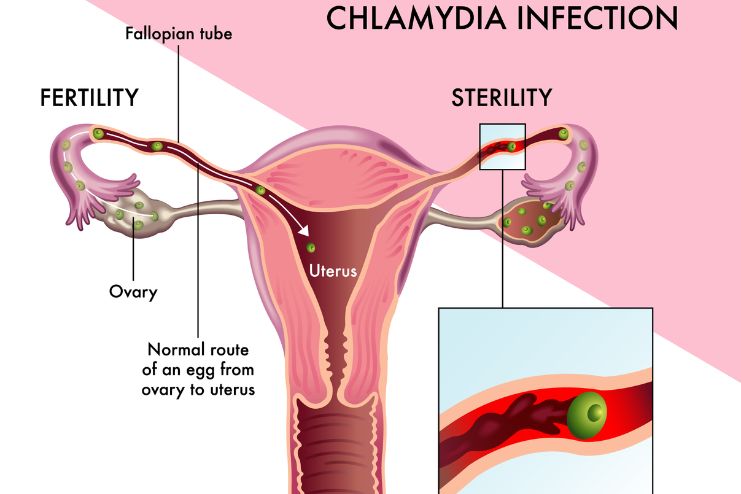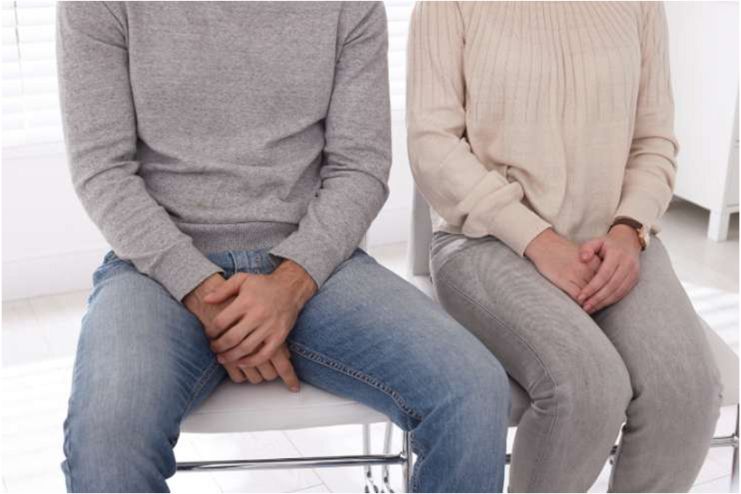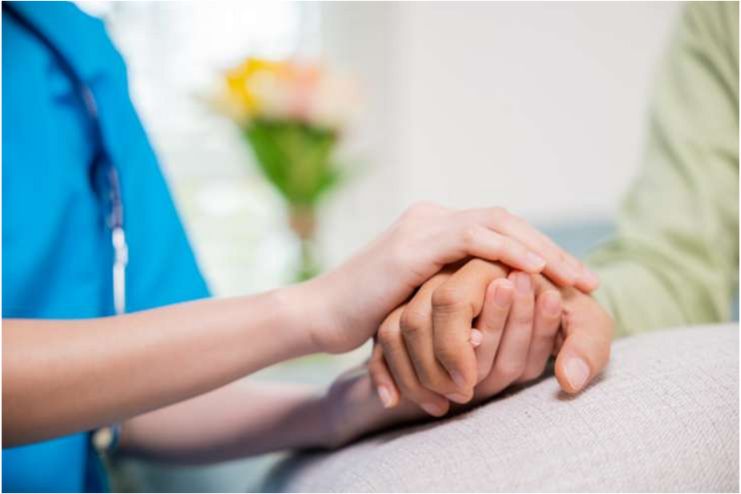Affiliate Disclaimer
Some links in this article are affiliate links. We may earn a small commission if you make a purchase through these links, at no extra cost to you. We only recommend products we find useful to our readersMany refer to Chlamydia as the “silent infection,” and for good reason. It grows secretly and frequently does not display any symptoms until it has already started to do damage. Millions of people worldwide suffer from this STI (sexually transmitted illness) but it rarely receives the attention it needs. According to the World Health Organization, there were 128.5 million new cases of chlamydia infections among adults aged 15 to 49 worldwide in 2020.
For what reason is this important? Infertility, persistent pelvic pain, and increased vulnerability to other infections might result from untreated cases. The good news is that early detection changes everything. By preventing problems and safeguarding your health, routine testing and awareness can stop Chlamydia.
Your greatest ally is knowledge because once you know what to look for, even silent threats cannot be hidden. In this article, we have attempted to include all relevant information regarding Chlamydia and its symptoms in both men and women.
What is Chlamydia?
The bacteria Chlamydia trachomatis is the sneaky intruder that causes Chlamydia. It ranks among the most prevalent STIs and silently spreads through unprotected sexual intercourse, including oral, anal, or vaginal sex. Chlamydia frequently operates in the background, with up to 70% of women and 50% of males showing no symptoms, in contrast to more apparent infections. Because it is silent, it might continue unnoticed and, if treatment is not received, can cause problems over time.
Additionally, during birthing, a pregnant woman may transmit Chlamydia to the unborn child. Having unprotected sex with someone who already has Chlamydia increases your risk of contracting the infection again if you have previously had it and received treatment.
Young people, particularly young women, are more likely to contract Chlamydia. Having several partners or not using a condom regularly increases your risk of contracting chlamydia.
Chlamydia in Women

Sexual contact is how chlamydia infections spread, as the bacteria that causes the disease spreads from one person to another through the vaginal fluid or semen. All forms of sex, even intercourse without penetration or ejaculation, are considered sexual contact. The bacterium that causes Chlamydia can spread through vaginal secretions in a variety of ways.
Most commonly, the chlamydia bacterium first attacks the cervix and causes symptoms such as bleeding between periods, stomach pain, pain during urination as well as vaginal discharge. The infection then spreads to other body parts, such as the uterus, urethra, and fallopian tube. Research shows that the disease can develop into pelvic inflammatory disease if left untreated.
Some of the significant symptoms of Chlamydia in women are listed below.
- Pain while urination
- Inflamed eye
- Bleeding, discharge, or rectal pain
- Vaginal discharge
- Fever
- Nausea
- Lower backache
- Pain in the lower part of the stomach
- Pain during sex
- Sore throat
- Bleeding in the menstrual cycle
Chlamydia in Men

In men as well, the problem of Chlamydia does not show any symptoms, considering the very silent nature of the disease. Men may experience symptoms from Chlamydia. Anyone with a penis may experience these symptoms:
- Penis pain and swelling in the testicles
- Burning and itching around the testicles (balls)
- White, hazy, or the watery discharge from the tip of your penis
- A scorching sensation when urinating
- Rectal pain or bleeding and discharge
- Inflamed eye
- Sore throat
It is essential to treat the disease as soon as possible. Otherwise, if left untreated, the problem can cause infection of the urethra and epididymis. Men who are involved in regular sexual activities need to get themselves checked for Chlamydia to get rid of future complications.
What Doesn’t Lead to Chlamydia?
The widespread sexually transmitted illness (STI) chlamydia feeds on false beliefs and misconceptions. Let’s clarify: Chlamydia can’t spread through casual, daily encounters. Chlamydia is not always the result of intimate contact or bodily fluid exchange. You cannot contract Chlamydia from:
- Sharing beverages or food.
- Using the restroom after another person.
- Shaking or hugging a hand.
- Sharing cutlery with an infected individual.
- Distributing clothes.
For Chlamydia to spread during unprotected sexual activity or childbirth, there must be direct contact with infected mucosal membranes or body fluids.
Why is dispelling these falsehoods important? Because false information might induce needless shame or terror. You can concentrate on effective prevention techniques and have open discussions about sexual health when you know what doesn’t cause Chlamydia.
What is the treatment of Chlamydia? Can it be Cured?
The doctor treats a C. trachomatis infection based on the patient’s age, the location of the illness, and whether the infection is complicated. There are also differences in treatment during pregnancy. Doctors use antibiotics to treat Chlamydia. You can take these tablets for seven to fourteen days, or you can take one dose. Treatment may occasionally begin before test results are received.
The CDC advises taking 100 mg of doxycycline (Vibramycin) orally twice a day for seven days or 1 g of azithromycin (Zithromax) in a single dosage for uncomplicated genitourinary chlamydial infections. Although azithromycin has the advantage of being able to be administered by doctors in the office, these regimens have comparable cure rates and adverse effect profiles. If individuals throw up the azithromycin dosage within one to two hours of ingesting it, doctors should consider an alternate course of treatment.
Doctors should follow up with patients with urethritis only if their symptoms worsen or they return after the antibiotic course. The CDC advises treating patients with 2 g of metronidazole (Flagyl) taken orally in a single dosage along with 500 mg of erythromycin base taken four times daily for seven days or 800 mg of erythromycin ethyl succinate taken orally four times daily for seven days if symptoms point to recurrent or persistent urethritis.
Doctors recommend that patients refrain from having sex for seven days following the start of treatment. Doctors should also get exposure data for the last 60 days and think about screening for HIV and other sexually transmitted diseases.
After treatment, you might need to get tested again to make sure you don’t have Chlamydia. Four weeks following treatment, you will undergo another test if you are pregnant.
When to Get Medical Assistance

Despite its quiet behavior, Chlamydia requires attention. If you observe any red flags, such as unusual discharge, pain when urinating, bleeding between periods, or pelvic pain, get medical attention right away. Men should be aware of any discomfort or swelling in their testicles.
It’s essential to pay attention to symptoms, even if they seem minor or nonexistent. If you don’t get treatment, Chlamydia can silently ruin your reproductive health. A quick test and prompt treatment can avoid serious side effects like infertility or pelvic inflammatory disease. Never put off seeking medical advice when it comes to your health; doing so is the first step to recovery.
Conclusion
Your knowledge can help break the cycle of silence in which Chlamydia thrives. The first line of defense is education; being aware of the infection, its causes, and its dangers allows you to take charge. Routine testing and timely treatment are essential to safeguard your health and the health of those you care about.
Act now by making an appointment for a test, speaking with your physician, and promoting candid discussions regarding sexual health. By working together, we can eradicate the stigma associated with Chlamydia and establish a society in which infections that go unnoticed have nowhere to hide. Knowledge is indeed power!
-
Oct 2017Written by Prajakt
-
Dec 2024Edited by Ankita
References
- https://www.who.int/news-room/fact-sheets/detail/chlamydia
- https://my.clevelandclinic.org/health/diseases/4023-chlamydia
- https://www.nhs.uk/conditions/chlamydia
- https://medlineplus.gov/chlamydiainfections.html
- https://www.thewellproject.org/hiv-information/sexually-transmitted-infections-or-diseases-stis-or-stds
- https://www.publichealth.va.gov/infectiondontpassiton/womens-health-guide/stds/chlamydia.asp
- https://www.mayoclinic.org/diseases-conditions/chlamydia/symptoms-causes/syc-20355349
- https://www.cdc.gov/std/treatment-guidelines/chlamydia.htm
- https://www.aafp.org/pubs/afp/issues/2006/0415/p1411.html
- https://www.nhs.uk/conditions/chlamydia
In this Article
















